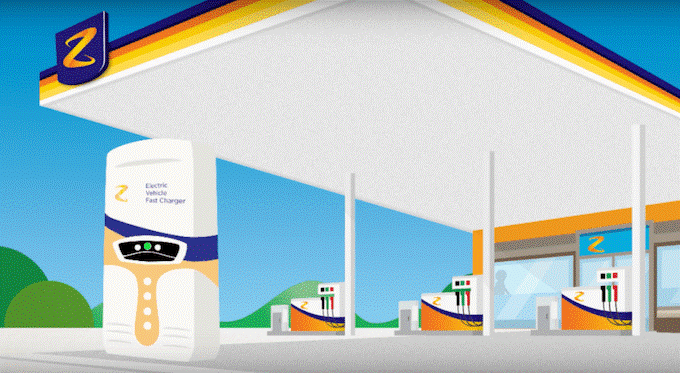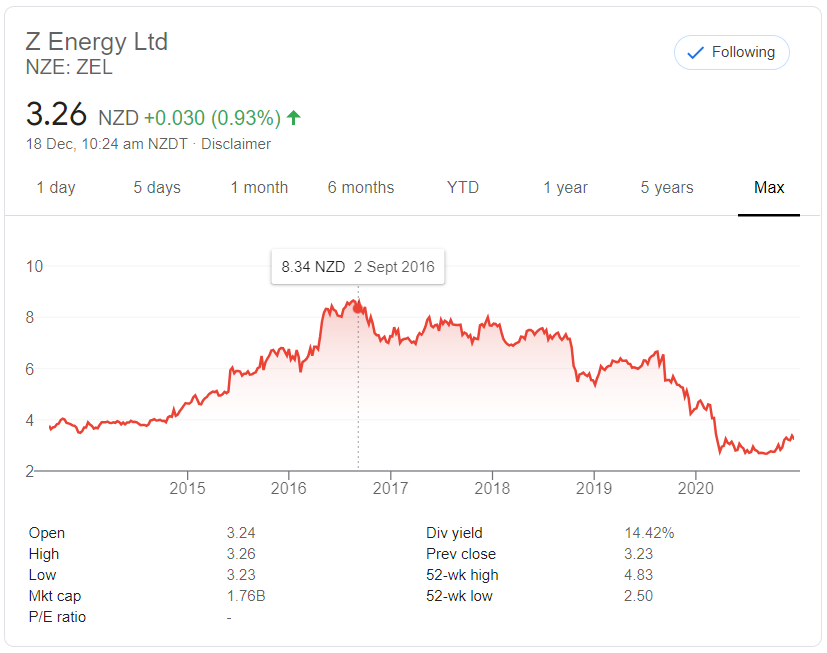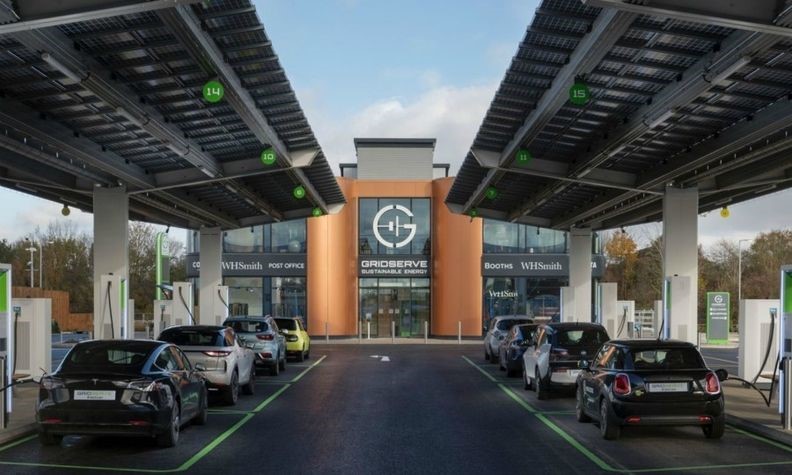The way we power transport is changing.
Right now, most of us fill our vehicles with a fossil fuel — petrol or diesel. We burn that. Emit carbon. And get around the place.
What few of us stop to consider is the pollution this is creating. A British study found that living next to a major road could stunt children’s lung growth by up to 14%.
The problem is many busy and congested roads exceed WHO clean air targets. These specify no more than 40 micrograms of annual nitrogen dioxide per cubic metre of air. Nitrogen dioxide is also known as ‘black carbon’. It is linked to heart and lung disease. And respiratory problems.
In a search around Auckland — where I live — there were many roads and interchanges where levels of black carbon exceeded 40 micrograms. Not annually, but in a three-month period.
So, with this in mind, you may not be surprised to learn that the UK has announced a ban on new petrol and diesel cars from 2030. This greening of the transport network will likely spread around the world.
What will this mean for investors? Are there still opportunities in fossil fuel companies that now seem to be getting discounted by the market? Perhaps unreasonably so?
In particular, I want to consider local play Z Energy [NZX:ZEL] as both a current shareholder and potential investor.

Does Z Energy [NZX:ZEL] have a brighter future beyond its recent share price slump? Source: Stop Press
Could total electrification of the car fleet over the next decade or so actually be feasible?
National Grid [LSE:NG.] is the key distributor of electricity across the UK. The Company claims its network is robust enough to cope with a predicted spike in EV sales from 2030.
This move is already gathering steam. In November 2020, sales of EVs in Britain rose 122% from the previous year.
The average number of new car registrations in the UK has been around 2.35m per year. Put this in perspective of a total fleet size of around 40m. That suggests a replenishment rate from new vehicles of about 6% per year.
By 2045, we could be looking at predominantly electric fleet of vehicles across Britain, if not Europe and much of the rest of the developed world.
National Grid says that even if the impossible happened — the entire fleet moves EV overnight — this could increase total demand by only around 10%. Within the range of ‘manageable load fluctuation.’
Opportunities for fuel retailers like Z Energy?
If, in just 25 years, demand for fossil fuel sites nears drying up — what would this mean for service stations?
Looking at the Z Energy share price over the past several years, we can see the business falling out of favour with investors:

Source: Google Finance
From a high of over $8 in 2016 to a low of just $2.50 during the Covid crisis.
Yet, on a fundamental analysis, Z does show value compared with many other companies. It is gradually increasing fuel volumes since the Covid shock. And once aviation fuel demand comes back on stream, earnings may jump again.
Long-run resurgence in the share price will come down to business strategy. Being willing and able to make key changes in the business model. To grow earnings in a changing market.
For example, NZME [NZX:NZM] exists in another challenging industry where the sun is setting over the traditional business mode: print media. Yet, to some degree, the Company has responded by moving toward a digital business. And thus far, the market is responding positively, with the NZME share price up around 400% from March to December 2020.
Could Z Energy benefit from electrification?
By definition, owning an EV means you will need to stop more often to recharge. Since your range is lower than with petrol — and much lower than with diesel.
Service stations benefit from more stops. When customers pay for recharge, they might recharge in other areas. A coffee or pie. A car wash or bottle of milk.
In December 2020, the first EV-only service station opened in the UK. There will likely be many more.

Gridserve’s first charging station in Essex, England has 36 rapid chargers. Source: Automotive News Europe
Gridserve and Hitachi UK are planning 100 such facilities in a £1 billion national roll-out plan. The chargers are powered by renewable energy, including from solar panel canopies above the units. They are also the fastest in the country, able to top-up a 322km range battery in 20 minutes.
Charging will cost you 24p per kilowatt-hour (kWh) of energy. The lowest ultra-high-power charging rates on the market, according to the Company.
A standard EV battery requires 30 kWh per 160km. So a full charge could cost up to £14.
Now, this is a lot less than what you’d pay for a petrol or diesel full. But it is not quantity that matters so much. It is margin. The average cost per kWh in retail power in the UK is around 16p. We would expect wholesale and solar delivery to come in at a much lower long run cost.
This could suggest gross margins of up to 200%. Whereas fossil fuel margins tend to be in the range of 3-6 cents (net) per litre.
As with traditional fuel delivery, we would expect rapid charge delivery to also be competitive. Since electricity is easier to deliver than petrol, customers can also charge at restaurants, car parks, and other public spaces.
Z Energy, with its service station network, does have some advantage. The stations are already at desired refuel points along customer routes.
A move from fossil fuels to EVs does not end demand for refill of energy.
It creates new opportunities to deliver energy in a different form and potentially at higher margin. And to provide convenience retail items alongside that energy delivery.
For now, the focus for Z is on the regrowth of fuel volumes. But over the long run the value will be in their sites. And how they strategically develop them for the coming revolution in transport.
The jury is still out on whether EVs are the ultimate answer. Lithium-battery production has its own climate challenges. I’m a long-distance driver, currently with a large diesel Mercedes (emissions cleansed with AdBlue). The prospect of a hydrogen fuel-cell vehicle with a closer level of range appeals to me more.
Indeed, a recent survey of 1,000 global auto executives concluded that hydrogen fuel-cell technology will ultimately outperform battery-powered electric vehicles.
Again, Z Energy already has the network of retail sites that could be used to deliver hydrogen filling.
While Z carries significant risks around the move away from fossil fuels — and appears out of favour with many investors — there could also be medium and long-term upside:
- Medium upside in the recovery of automotive fuel volumes — and in time, aviation fuel volumes post-Covid.
- Long-term upside if the Company can successfully use its site network to ‘lead the charge’ with superior rapid charge and alternative fuel options, coupled with smart convenience retail.
Share price update
Z Energy owns 15.4% in the New Zealand Refining Company [NZX:NZR].
Yesterday, Z announced that it had issued a dispute notice with NZR.
Z has a Processing Agreement with NZR.
NZR has plans to simplify Marsden Point oil refinery operations to reduce costs.
NZR has also issued a dispute notice to Z, claiming the Fee Floor should be $70m higher.
Within the announcement was a statement from Z CEO Mike Bennetts:
‘Z disagrees with the 2021 linear programme that Refining NZ provided to the industry. The proposition does not allow the Refinery’s customers to access the full capacity of the refinery and makes no financial adjustment for this reduced capacity. Z has notified the Refinery that we will pay the contracted processing fee only and we will not make any additional top-up or fee floor payments while full capacity is not made available to Z. Additionally, Z will claim for costs incurred while the Refinery is in breach of the processing agreement.’
It seems the two companies have before tried to resolve the issue through dialogue. Z claims this has not worked.
Z appears well within its rights to seek an accelerated dispute resolution process. Especially as such seems prescribed in the Processing Agreement.
The share price, previous on a recovery climb to $3.40, has stumbled down to around $3.25 on this news.
Yet this could allow investors to enter Z at a more favourable price. Robust management has improved the return on capital for this business over the past few years. And a resolute response to this refining dispute suggests they still have their eye well on the ball.
There are significant risks and opportunity in the Z share. Long-run good management and some moat from a network of strategically located retail sites could provide upside. For whatever fuel or charge future transport may need.
We see value in the share price, cognisant of the risks and opportunity up to $3.30.
Regards,
Simon Angelo
Editor, Wealth Morning
Important Disclosures
Simon Angelo owns shares in Z Energy [NZX:ZEL], NZME [NZX:NZM], and National Grid [LSE:NG.]. He manages global portfolios via Wholesale Wealth Manager Vistafolio.





Simon is the Chief Executive Officer and Publisher at Wealth Morning. He has been investing in the markets since he was 17. He recently spent a couple of years working in the hedge-fund industry in Europe. Before this, he owned an award-winning professional-services business and online-learning company in Auckland for 20 years. He has completed the Certificate in Discretionary Investment Management from the Personal Finance Society (UK), has written a bestselling book, and manages global share portfolios.